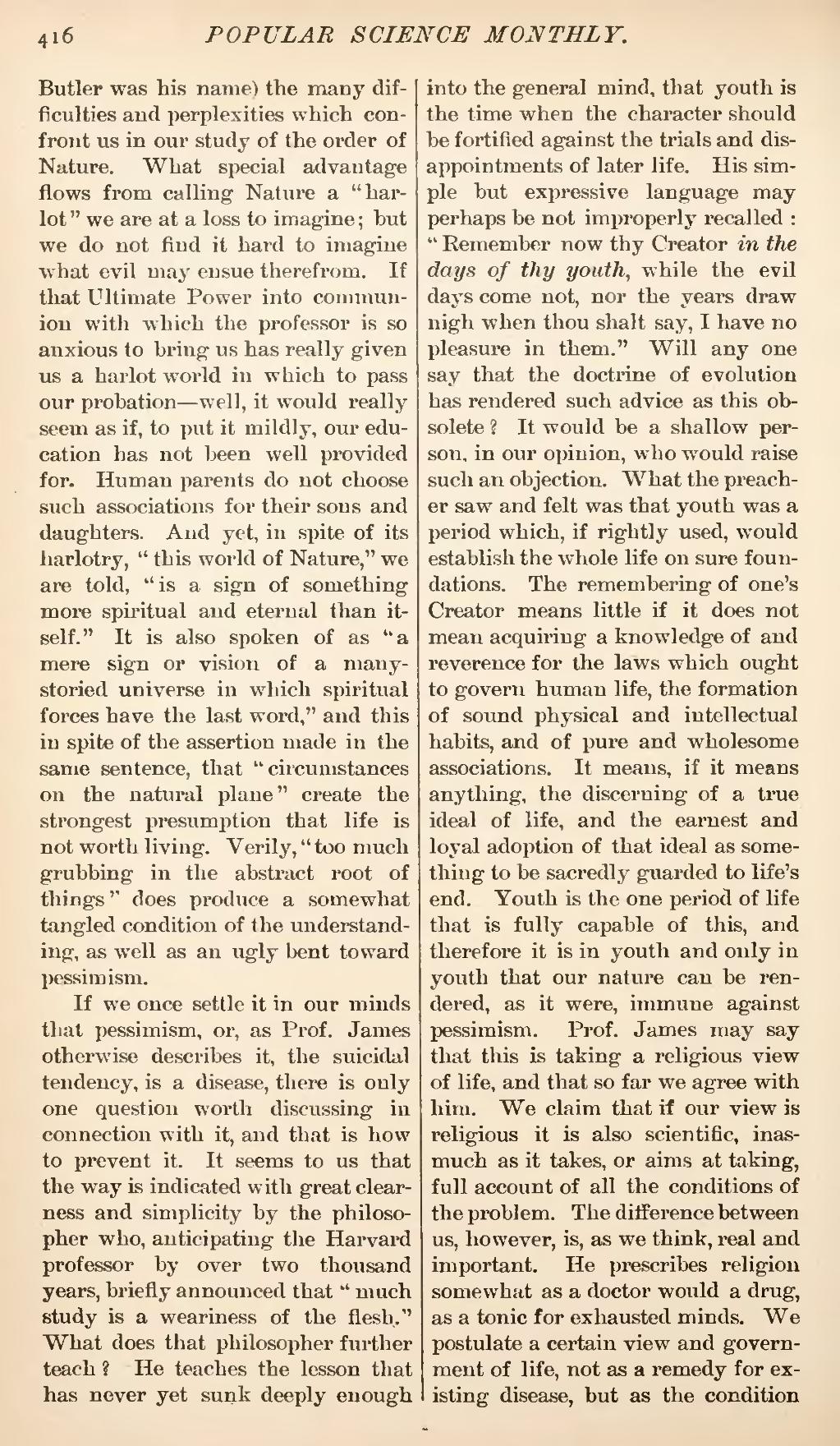Butler was his name) the many difficulties and perplexities which confront us in our study of the order of Nature. What special advantage flows from calling Nature a "harlot" we are at a loss to imagine; but we do not find it hard to imagine what evil may ensue therefrom. If that Ultimate Power into communion with which the professor is so anxious to bring us has really given us a harlot world in which to pass our probation—well, it would really seem as if, to put it mildly, our education has not been well provided for. Human parents do not choose such associations for their sons and daughters. And yet, in spite of its harlotry, "this world of Nature," we are told, "is a sign of something more spiritual and eternal than itself." It is also spoken of as "a mere sign or vision of a many-storied universe in which spiritual forces have the last word," and this in spite of the assertion made in the same sentence, that "circumstances on the natural plane" create the strongest presumption that life is not worth living. Verily, "too much grubbing in the abstract root of things" does produce a somewhat tangled condition of the understanding, as well as an ugly bent toward pessimism.
If we once settle it in our minds that pessimism, or, as Prof. James otherwise describes it, the suicidal tendency, is a disease, there is only one question worth discussing in connection with it, and that is how to prevent it. It seems to us that the way is indicated with great clearness and simplicity by the philosopher who, anticipating the Harvard professor by over two thousand years, briefly announced that "much study is a weariness of the flesh." What does that philosopher further teach? He teaches the lesson that has never yet sunk deeply enough into the general mind, that youth is the time when the character should be fortified against the trials and disappointments of later life. His simple but expressive language may perhaps be not improperly recalled; "Remember now thy Creator in the days of thy youth, while the evil days come not, nor the years draw nigh when thou shalt say, I have no pleasure in them." Will any one say that the doctrine of evolution has rendered such advice as this obsolete? It would be a shallow person, in our opinion, who would raise such an objection. What the preacher saw and felt was that youth was a period which, if rightly used, would establish the whole life on sure foundations. The remembering of one's Creator means little if it does not mean acquiring a knowledge of and reverence for the laws which ought to govern human life, the formation of sound physical and intellectual habits, and of pure and wholesome associations. It means, if it means anything, the discerning of a true ideal of life, and the earnest and loyal adoption of that ideal as something to be sacredly guarded to life's end. Youth is the one period of life that is fully capable of this, and therefore it is in youth and only in youth that our nature can be rendered, as it were, immune against pessimism. Prof. James may say that this is taking a religious view of life, and that so far we agree with him. We claim that if our view is religious it is also scientific, inasmuch as it takes, or aims at taking, full account of all the conditions of the problem. The difference between us, however, is, as we think, real and important. He prescribes religion somewhat as a doctor would a drug, as a tonic for exhausted minds. We postulate a certain view and government of life, not as a remedy for existing disease, but as the condition
